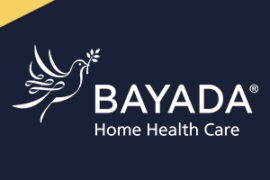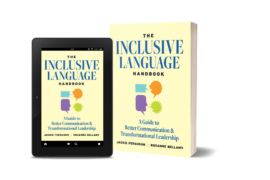First things first, it’s pronounced “Air-ub,” not “Aye-rab.” Correct pronunciation is integral to inclusion, and many of us Arabs living in America feel belittled when the one word that represents our unified identity is mispronounced or Americanized. Words hold power, and proper pronunciation indicates respect.
In this article, you’ll find additional tips for workplace inclusion, so that your organization can recognize and participate in National Arab American Heritage Month, and continue best practices all year long.
Here are some important foundational points to keep in mind as you read or listen to this guide:
- There are 22 Arab countries in the world. Some intersect with Africa; some intersect with Asia.
- Most Arab people speak 3+ languages. Most typically, Arabic, English, and French.
- Arabic is the primary language in each of these 22 countries, yet it has many different accents, enunciations, idioms, and colloquial expressions depending on the country of origin. For instance, the Arabic language spoken in South Sudan is vastly different from the Arabic spoken in Saudi Arabia.
- Not all Arab people are Muslim, and not all Muslim people are Arab.
- The ‘Middle East’ refers to the region itself, while ‘Arab’ refers to Arabic-speaking countries and cultures. There are countries in the Middle East that do not speak Arabic, like Turkey and Iran.
- Arab people come from many different racial and ethnic backgrounds. Many Arab people identify as Black, White, multiracial, olive-skinned, or more. Yet the U.S. Census has put “Middle Eastern & North African” within the “White” racial category, which is not an agreeable classification to most Middle Eastern people, North African people, and Arab-speaking individuals in the U.S.
- ‘North Africa’ entails Egypt, Morocco, Tunisia, Libya, and Algeria. All these countries are Arab countries because they speak the same language, yet they are also African. Hence, an Egyptian person may identify as both Arab and African.
Now that we have covered the foundational elements of terminology, let’s address the representation of Arab Americans in diversity programs and inclusion efforts.
Empowerment and visibility for Arab American professionals
Let’s be real. Even in conversations about organization-wide diversity and inclusion, we rarely talk about empowering Arab American communities or employees. Most Arab American professionals try to assimilate to American work culture and do what they need to do to be successful, in some cases because we’ve been taught by our parents to respect authority and follow the rules.
For many of us, it wasn’t until we started seeing multiple underrepresented and marginalized communities around us (for instance, the Black American community, LGBTQ+ community, and the disability community) empowered in the DEI space that we realized our experience is underrepresented too, and we need to speak up and lead our narrative in this climate.
Here, let me note, it is crucial that Arab American professionals lead their own narrative in the workplace because, for many years, mainstream media has put forward false imagery and stories about our communities. We have been placed in boxes and categories, without the chance to speak up and correct biased misinformation. For instance, Arabic has been portrayed as an aggressive language so that if someone breaks into their original accent, they could be viewed as “difficult to work with.”
How Arab American Employees add value to your organization
Arab Americans in the workforce add tremendous value by leveraging their lived experience. For instance through:
- A multilingual skill set: Most people of Arab American heritage are bilingual or trilingual, helping your organization reach a wider market.
- Their cultural upbringing: Many Arab Americans grew up in an environment where they were “raised by the village” and would thus describe themselves as hospitable, welcoming, friendly, or warm.
- Valuable global experiences: Many Arab American people have worked in multiple different countries (for instance, United Arab Emirates, Saudi Arabia, Lebanon, and Egypt) and have learned to interact on a daily basis with people who are different than they are, whether that means other Arab people, Middle Eastern people, North African people, West African people, or others. Their cultural competency is a huge business advantage, especially in a cross-cultural environment.
Inclusive Language Practices for Communicating with Your Arab American Colleagues
1. When you’re making friends, don’t be afraid to ask questions. But also remember, as a best practice for inclusive language, you should only ask someone about their ethnicity when it is relevant to the conversation or if you are developing a friendship and genuinely want to learn more about this person. Never ask “What are you?,” which is offensive and belittling. Instead, you might try “Which country is your family from?”; “Do you speak multiple languages?”; or “Would you feel comfortable telling me a little bit about the history of your country? I’d like to learn more.” By asking respectful questions like these, you are showing your Arab American colleague that you are genuinely interested and their lived experience is valued in the workplace.
2. Be respectful of cultural practices and perspectives. Learn respectful ways to accommodate your Arab American and Muslim colleagues throughout National Arab American Heritage Month (NAAHM) and throughout Ramadan. But remember, it isn’t only during NAAHM and Ramadan that Arab American people deserve acknowledgement and respect. Show cultural competence throughout the year by being respectful of your Arab American colleagues’ cultural practices, no matter how different they may be from your own. Many Arab American individuals hold deep cultural values that are often misunderstood as being “un-liberated” or “closed-off.”
For instance, consider the following scenario:
Salwa is a 25-year-old Christian Arab and North African-identifying woman who was raised in Maghreb, Morocco and recently moved to California to pursue her Master’s Degree in Business Administration. One night after class, her classmates invite her for a drink, and she accepts.
It is important to understand that, as a Christian in Morocco, Salwa learned to be exceptionally cautious about drinking with her Muslim friends (because alcohol is considered haram – prohibited or sinful – by many Muslims). Salwa knows to be respectful of different cultural-religious practices. Thus, it is part of her character to be socially aware and attuned to how her actions might make other people uncomfortable.
Her friends notice that she is not so engaged in drinking or talking about R-rated topics as they are, but they assume her actions stem from her upbringing within a conservative culture where women don’t get to speak their minds. Salwa definitely felt some culture shock when she arrived, but since then, she has seized the opportunity to educate her friends about how she grew up and what she learned in Morocco about respecting cultural boundaries and being socially conscious as a sign of admiration. She assures them her actions have nothing to do with being “un-liberated.”
The main point of this scenario is that people should not automatically assume a person is close-minded or intolerant simply because they come from an Arab country. Values, principles, and practices of respect are major pillars of many Arab cultures that Arab individuals in America often choose to hold on to so they can stay true to themselves.
Hence, it’s best to respect those cultural boundaries when interacting with Arab American colleagues who clearly state or show their values. Just because we live in America does not mean we all have to express ourselves and behave the same way.
3. Use your words to make people feel welcome. To show cultural interest and appreciation for your Arab American colleagues and their language, here are some foundational tips:
- You can greet them with a simple “Ahlan!” (hello) or “Marhaba” (hi), and ask “Kifak?” (how are you) for addressing men or “Kifeek?” for women. When you are meeting a new person who is nonbinary or whose gender you do not know, you may address them with “Kifkoun” instead. (Kifkoun also means “how are you” but uses a plural “you,” similar to the singular they in English). However, most Arab American non-binary or gender non-conforming individuals utilize English for inclusive language in the workplace, especially since gender-inclusive language in the Arabic language is still a work-in-progress.
- For those who celebrate Ramadan, you might say “Ramadan Mubarak!” (blessed Ramadan) or “Ramadan Kareem!” (generous Ramadan, or may Ramadan be generous to you).
Avoid showing pity or belittling your colleagues who come from countries facing war and economic breakdown. Rather, empower their narrative of personal development. For instance, instead of saying “I’m so sorry, that must be so tough for you!” You can say “I really admire your perseverance, and I am learning a lot from your cultural upbringing. I enjoy having you as a colleague.”
4. Avoid unconscious, linguistic bias. Linguistic bias refers to the misconceptions one person has towards another whose English might be considered “broken” or different from the standard of business communication. Never say “you speak English so well.” It is an offensive microaggression. In the case of Arab American people, especially those who may have heavy accents, it’s important to remember that their “imperfect” spoken English is not a sign of weakness or a lack of intelligence or any other negative thing. Instead, it shows their adaptability in learning and speaking more than one language – an added value in work environments. Often, people may stumble over their words and need a little extra time to deliver their thoughts. Consider offering a simple, encouraging statement such as “I’m interested in your perspective on this matter, please take your time answering, and I am here to listen.” Encouragement like this can make your colleague feel comfortable and open about communicating, without feeling intimidated by a demand for perfect English.
Jad-Évangelo Nasser is a multilingual Media & Communications professional and educator with global experience in creative agencies in the Middle East, North African and North American regions with extensive skill sets in film production, creative marketing strategies, DEI, and learning and development.














